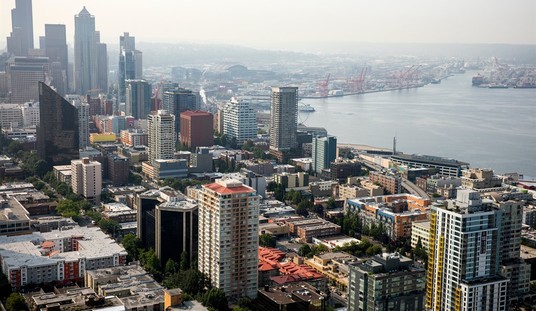It wasn’t exactly the tweet heard round the world, but it was apparently enough for the GAO to conclude that the Department of Transportation had broken the law.
In one of the stranger stories to cross our virtual desk this week, the Government Accountability Office has determined that the DoT was in violation of federal law (I’m assuming the Hatch Act or something similar) when it liked and retweeted a tweet supporting the overhaul and “privatization” of the FAA. Yes, it wasn’t even an original tweet of their own, but it sounds like “RT does not equal endorsement” is going to work as a defense here. (The Hill)
A federal watchdog says the Trump administration violated anti-lobbying laws in retweeting a message in support of a bill privatizing air traffic control.
The Government Accountability Office (GAO) concluded that the Department of Transportation (DOT) violated federal law when it liked and retweeted a July post from Steve Forbes urging Congress to pass legislation to separate air traffic control from the federal government. The tweet also included a link to a website allowing people to automatically send an email to their representative on the issue.
The DOT eventually untweeted and unliked the post, after it was flagged by the agency’s legal office.
“Although DOT was not the author of the tweet, DOT, by retweeting and liking it, not only endorsed the message, but also created agency content,” the GAO said.
I’ve written here extensively about this so-called privatization scheme that Bill Shuster has going and what a colossally bad idea it is, but that’s really not the issue here. We’re also not talking about some individual servant of the DoT tweeting on their own account. This was a case of the department’s Twitter account liking and retweeting the original message. I suppose the question we should be dealing with now is whether or not federal agencies (and this may wind up affecting state and local government entities as well) should be using social media at all, or if these rules need to be loosened a bit in the age of Twitter and Facebook.
The Department of Transportation has a surprisingly (at least to me) robust Twitter audience, with 188K followers. They’re also not particularly active, at least currently. The DoT has generated barely 6K tweets since starting the account and the vast majority of their current output is retweets. (As of this morning they’ve only hit Twitter a dozen times this month and all but three of those were retweets. Their original tweets were a couple of warnings against drunk driving around the holidays and an announcement that they were partnering with DHS to combat human trafficking.) How much of an impact does their Twitter account even have?
The offending tweet in question was eventually unliked and “untweeted” (as The Hill described it… I assume they meant deleted) but the alleged damage had already been done. The issue they were talking about, however, is obviously one which is applicable to the Department of Transportation. If they can’t even engage on that question, what point is there in allowing any department (as opposed to the individuals working there) to have a social media account? Consider one of those tweets I mentioned above where they cautioned people against drinking and driving after holiday parties.
In 2016, 781 people lost their lives in drunk-driving related crashes in the month
of December alone. Please Don’t Drink & Drive. https://t.co/tLhOnavG1m #DriveSober#TransportationTuesday— TransportationGov (@USDOT) December 12, 2017
There are currently campaigns underway in several states to alter the drunk driving laws in terms of blood alcohol content testing. Some feel they should be more restrictive, while bar and restaurant owners frequently complain that the rules are already so tight that they’re throttling business. This is a very real debate which is taking place right now, so was the DoT sticking their beak into that political activity with their seemingly harmless tweet about not getting drunk and jumping behind the wheel?
The point is, the official accounts of our various government departments aren’t going to be used to exchange cat pictures or videos of skateboarding dogs with their friends. (Or at least they shouldn’t be while they’re on the clock.) If they aren’t going to tweet about matters of interest to the department, what’s the point of being on social media? But to some extent, every tweet which has anything to do with government policy could be seen as either an endorsement or criticism. Being a government entity, virtually all of their “speech” can be construed as being political.
Seems to me that we either need to accept these agencies’ use of social media as a way of communicating with the public or just forbid them all from having departmental accounts on Twitter, Facebook and all the rest. And if we pick the former route, the rules probably need a fresh look or we’re going to have these “violations” popping up every time an agency tweets something related to a policy that someone disagrees with.








Join the conversation as a VIP Member